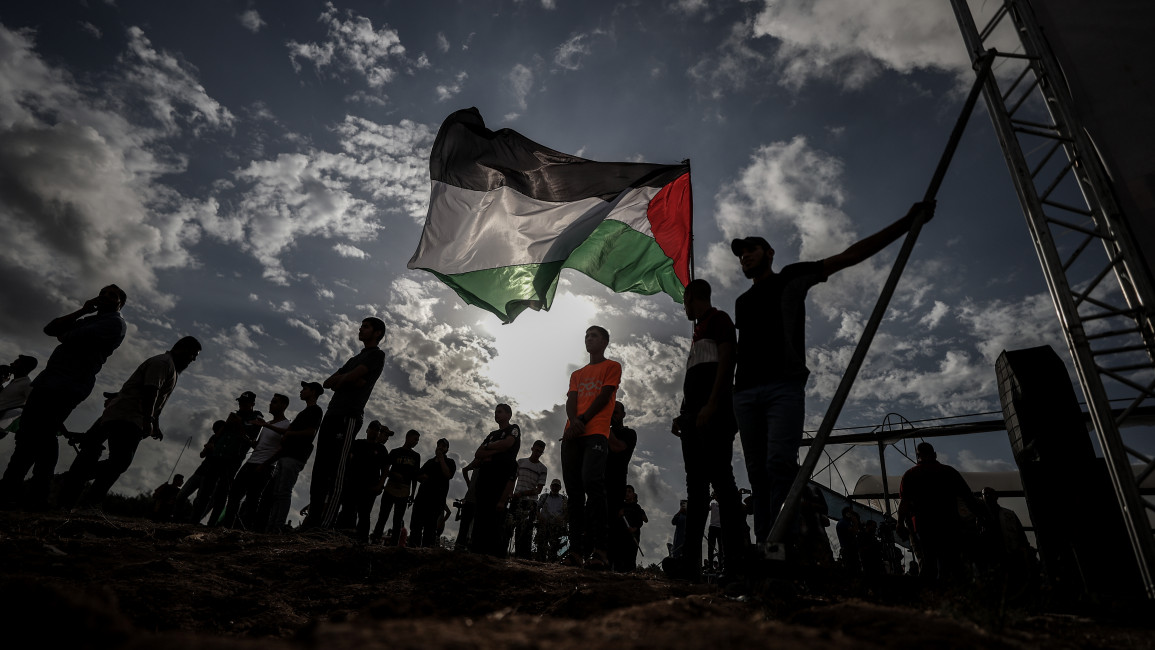UN mediation efforts fail to end Gaza-Israel border tensions
Officially, all the United Nations mediation efforts have failed to end the tensions between Palestinians and Israel at the eastern borders of Gaza.
On Tuesday, UN Special Coordinator for the Middle East Peace Process Tor Wennesland held meetings with leaders of Hamas, the Islamist group ruling Gaza, to discuss the field developments in the territory amid the ongoing Gaza-Israel border tensions.
"During the meetings, the UN Mideast envoy delivered Israeli messages to Hamas calling it to end the borders tensions to not push the territory towards new escalation," a senior official at the UN office said to The New Arab, under the condition of anonymity.
In turn, Hamas handed over its response to the Israeli demands and confirmed that it would never end the border tensions unless Israel implements all its pledges of easing its "illegal" blockade, including increasing the number of Palestinian workers in Israel, according to the source.
Israel did not approve Hamas's demands and insisted on its position of discussing more eases in Gaza once the tensions are stopped, the official said.
Palestinians in Gaza fear loss of calm amid increasing border tensions with Israelhttps://t.co/NeegCCtUB0
— The New Arab (@The_NewArab) September 25, 2023
On Wednesday, the UN Mideast envoy expressed his deep concerns about the current Palestinian-Israeli escalation on the eastern borders of the coastal enclave.
"I am Deeply concerned by the escalating tensions in and around Gaza," Wennesland tweeted on his X account, saying, "The situation inside the Strip is dire, and we must avoid another conflict that will have grave consequences for all."
"The people in Gaza have suffered enough, and they deserve more than a return to calm," he added, noting that the UN is working with all concerned to improve the lives of people in Gaza, particularly the most vulnerable.
Over two weeks, Palestinian protesters held demonstrations in the eastern fence separating Gaza from Israel to support the Palestinians jailed in Israeli prisons.
During the demonstrations, the Palestinian protesters hurled stones and some explosive devices at the Israeli soldiers stationed in the eastern territories, who responded by firing live and rubber bullets and gas bombs.
In addition, the protestors launched tens of incendiary balloons at the Israeli town adjacent to the coastal enclave, setting fire to some Israeli farmlands.
In response to the fire balloons, the Israeli military drones and artillery carried out raids at monitoring military sites belonging to Hamas, which Israel accuses of trying to blackmail it over a Qatari refusal to increase its monthly funds for Gaza.
Moreover, the Israeli authorities closed the only pedestrian crossing to the Gaza Strip, the Erez Crossing, preventing Gazan workers from reaching their workplaces in Israeli cities.
Despite the warnings of the UN official, Palestinian analysts believe that the tensions on the border are limited and may end soon as soon as Israel and Hamas reach an agreement that satisfies both parties.
The writer and political analyst from Gaza, Mustafa Ibrahim, told TNA that "it seems that Hamas is well aware that Israel is not ready to engage in a new round of war in Gaza, so it relies on limited marches on the border, and uses some harsh means that do not provoke Israel to respond harshly."
On the other hand, Ibrahim explains, "Israel is also trying not to inflict material and human losses among the Palestinians demonstrating on the border to leave a chance for mediators to intervene between it and Hamas, even if it tends to bomb some of Hamas' observation sites."
The same opinion was adopted by the Gaza-based political analyst Talal Okal from Gaza. He told TNA, "Hamas wants to impose a new equation that separates Israeli facilities from its role within the framework of the raging conflict."
"It wants to affirm that the facilities are a right and that they should continue as a fait accompli, regardless of practising any form of resistance," Okal said.


![South Sudan famine [AFP] South Sudan famine [AFP]](/sites/default/files/styles/image_330x185/public/media/images/5FED4B35-6177-43AD-844A-5C63373FCF89.jpg?h=d1cb525d&itok=TC12KIPv)
